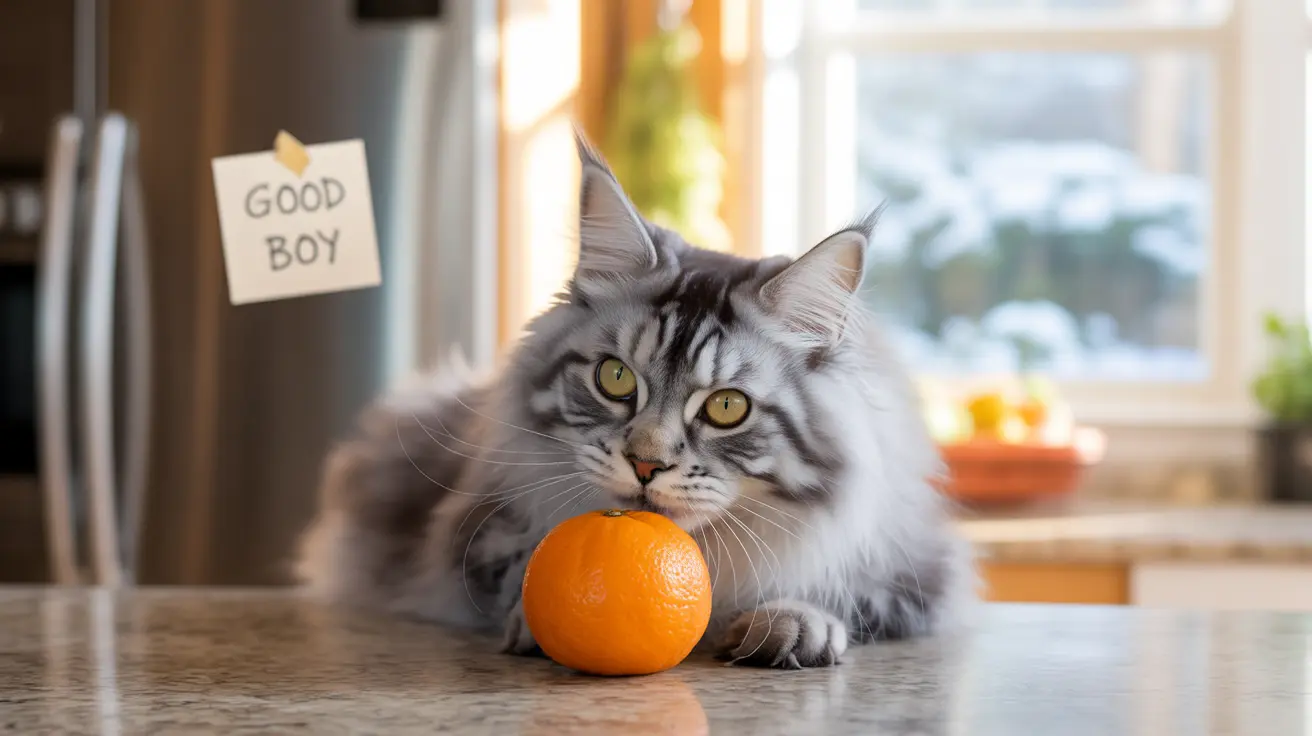Why Tangerines Are Toxic to Cats
Tangerines contain several compounds that are specifically harmful to felines. The most concerning components include essential oils (limonene and linalool), psoralens, and citric acid. These substances can cause both immediate and long-term health issues in cats.
The toxic compounds are found throughout the fruit, but are most concentrated in:
- The peel
- Seeds
- White pith
- Essential oil glands
Understanding the Health Risks
Immediate Digestive Issues
When cats consume tangerines, they typically experience rapid onset of digestive problems, including:
- Severe stomach upset
- Vomiting
- Diarrhea
- Loss of appetite
- Excessive drooling
Neurological Concerns
The essential oils in tangerines can affect a cat's central nervous system, potentially leading to:
- Weakness
- Tremors
- Depression
- Uncoordinated movement
- In severe cases, seizures
Why Cats and Citrus Don't Mix
Cats are obligate carnivores, meaning their digestive systems are designed specifically for processing meat. They lack the necessary enzymes to properly break down and metabolize fruits, especially citrus fruits like tangerines.
Additionally, cats don't have taste receptors for sweetness, making fruits nutritionally unnecessary and potentially harmful to their system. Nature has even equipped cats with an instinctive aversion to citrus scents as a protective mechanism.
Emergency Response to Tangerine Ingestion
If your cat has consumed any part of a tangerine, take these immediate steps:
- Remove any remaining fruit from your cat's reach
- Monitor for symptoms of poisoning
- Contact your veterinarian or pet poison control
- Keep your cat comfortable and watch for worsening symptoms
Prevention and Safe Alternatives
Instead of tangerines, consider these cat-safe treats:
- Commercial cat treats
- Small pieces of cooked lean meat
- Veterinarian-approved cat snacks
Frequently Asked Questions
Can cats safely eat tangerines or any citrus fruits?
No, cats cannot safely eat tangerines or any citrus fruits. These fruits contain toxic compounds that can cause serious health issues in cats.
What are the health risks if my cat eats tangerine peel, seeds, or pulp?
The risks include digestive upset, neurological symptoms, skin sensitivity, and potential poisoning. The peel and seeds contain the highest concentration of toxic compounds.
What symptoms should I watch for if my cat accidentally consumes tangerines?
Watch for vomiting, diarrhea, drooling, tremors, weakness, depression, and unusual behavior. If you notice any of these symptoms, contact your veterinarian immediately.
Why do cats dislike the smell of citrus fruits like tangerines?
Cats have a natural aversion to citrus smells as an evolutionary defense mechanism, helping them avoid these potentially toxic foods in nature.
What should I do if my cat shows signs of citrus poisoning after eating tangerines?
Immediately contact your veterinarian or the nearest emergency animal hospital. Don't wait for symptoms to worsen, as prompt treatment is essential for the best outcome.
Conclusion
While tangerines are healthy for humans, they pose significant health risks to cats. The best approach is prevention: keep all citrus fruits safely stored away from your curious feline companions and stick to veterinarian-approved treats. If you suspect your cat has consumed any part of a tangerine, don't hesitate to seek professional medical attention.






